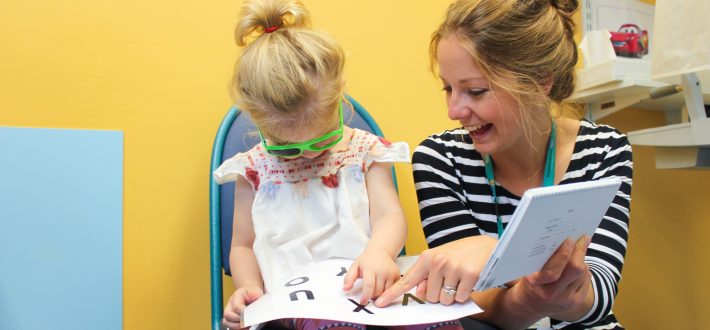- Newborn - follows a face in the centre of their view
- 6-8 weeks – follows a moving object or person with both eyes
- 2-4 months – looks at a toy in their hand, smiles or coos at themselves when placed in front of the mirror, deliberately maintains eye contact, looks at you when you are feeding them
Vision
Vision is very important and necessary to acquire various motor and social skills. Often an impairment to vision manifests as delay in gaining motor or communication/social skills. For information on what to do if you are concerned about your child’s vision click here.

- Show your baby pictures of faces and colourful books and toys.
- Point out new things to your baby.
- Play peek-a-boo and hide and seek.
-
If at any age you notice a white reflection (instead of red) in the pupil (dark centre circle of the eye) you must seek medical advice urgently via your GP.
- Not fixing and following moving objects or faces by the age of 3 months.
- Not smiling responsively by 3 months of age.
- Appears to have a squint or unequal movements with their eyes after the age of 3 months (babies younger than this can sometimes appear to squint (eyes turning in)).
- Random, repetitive or uncoordinated eye movements.
- Difficulties with development of fine motor or social skills may indicate a problem with your child’s vision, so please read those sections as well.
If you have any concerns about your child’s vision please speak to your health visitor or GP, and ensure you take your child for an eye check with the optician.



